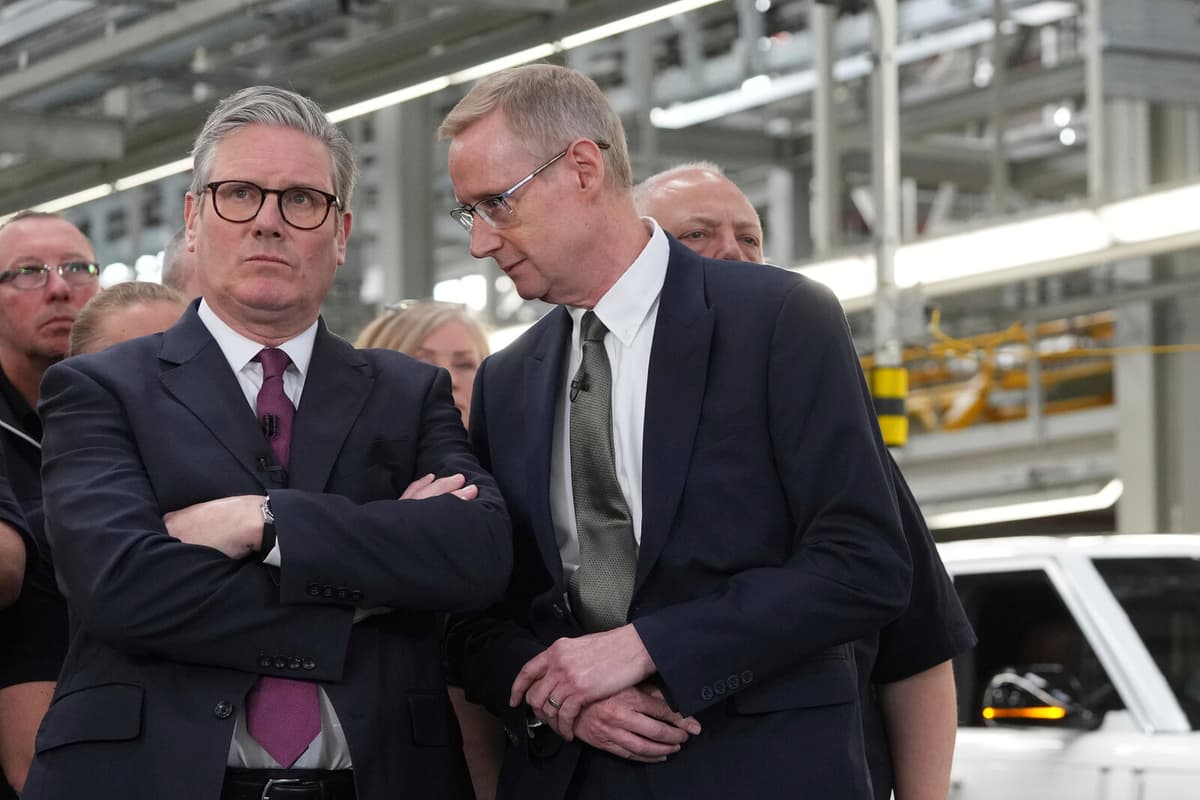For a few weeks ago, the British Prime Minister Starmer sat side by side with the US President Donald Trump in the White House in Washington DC. Starmer's trip was described as an urgent charm offensive to try to build some trust where many other Western leaders seemed to be going too far.
The two leaders smiled in front of the cameras, Trump praised Starmer as a "tough negotiator" and Starmer handed over an invitation to a second - "exceptional" - state visit, signed by King Charles III himself.
Now, about a month later, the US has also imposed higher tariffs on British goods. But the rates are almost half as high as those against the EU and many other countries: 10 percent, with the exception of British cars where the fee is set at 25 percent.
Flags for a new world
On Monday, while the world's stock markets plummeted, Keir Starmer stood in a car factory outside Birmingham and called for calm. The British government will protect the country's interests and industry, he promised.
Already over the weekend, Starmer and his government had begun hammering home the message that the era of globalization is over. In a debate article in The Sunday Telegraph, the Prime Minister wrote that a new world economy will be built on agreements and alliances, that "old truths can no longer be taken for granted", and opened up for greater state intervention in the market.
But the big question was whether he would retaliate - especially since the UK and the US have been in protracted negotiations on a comprehensive trade agreement since Brexit.
We hope to reach an agreement, said Deputy Finance Minister Darren Jones to BBC over the weekend, and emphasized that a lot of diplomatic groundwork had been done.
Thumbs down on climate regulations
At the car factory on Monday, the Prime Minister got a direct question about whether it was time to withdraw Trump's invitation to a state visit. Starmer replied that he certainly did not appreciate the tariff decision, but that the US still remained a close partner to the UK.
It's not in our interest to just tear up that relationship, he said.
Starmer also announced no retaliatory tariffs against the US, unlike the EU. Instead, British car manufacturers will get more leeway in the transition from fossil-fueled cars, which, on the other hand, will have consequences for the UK's emission targets.
We must be pragmatic and calm in the steps we take, but also need to maintain some perspective and context.
The US's new tariffs against countries around the world are described by the Trump administration as countermeasures aimed at leveling out all trade deficits: "If they do it to us, we'll do it to them".
Many of the countries are subject to a general tariff rate of 10 percent on all goods. Here are some of the countries whose goods are subject to even higher fees (based on the list released by the White House on April 2):
China - 54 percent (total, with previously increased fee)
Lesotho - 50
Cambodia - 49
Vietnam - 46
Syria - 41
Serbia - 37
Switzerland - 31
India - 27
South Korea - 25
Japan - 24
EU - 20
Israel - 17
Norway - 16






